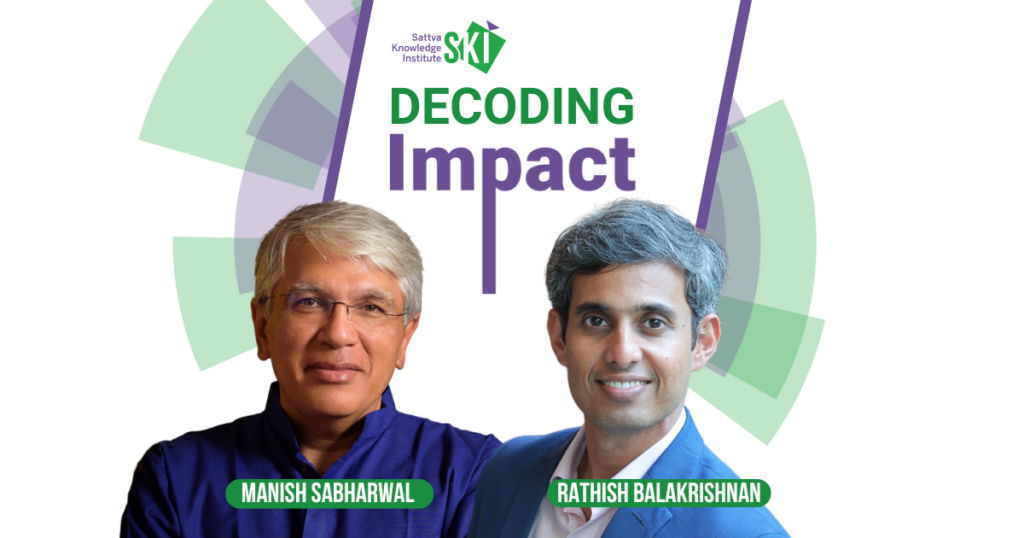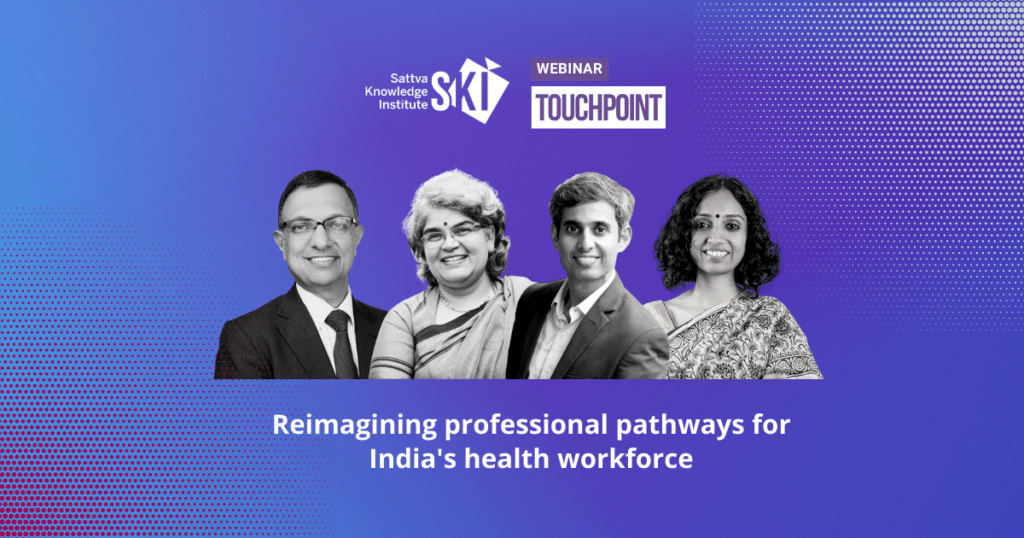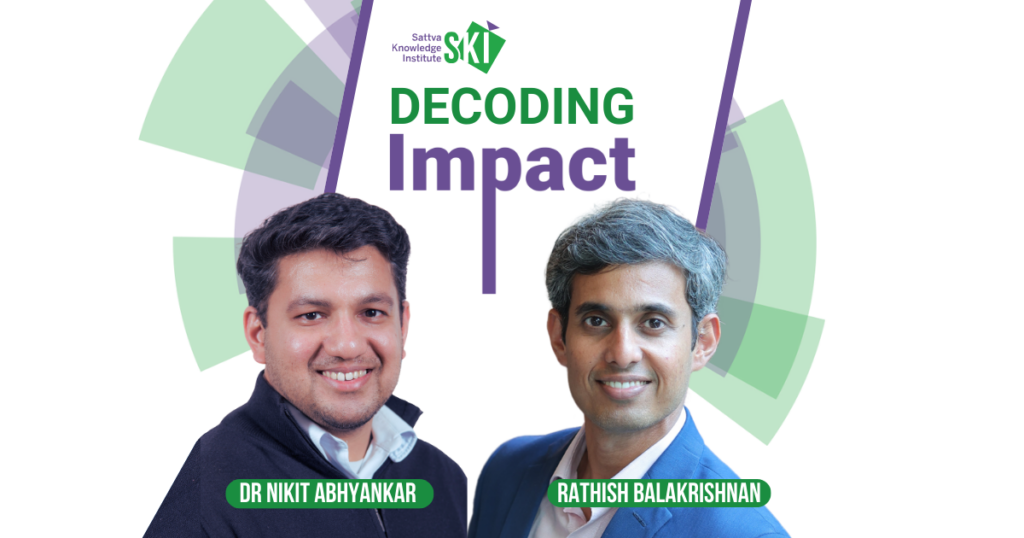The third session in the SKI Touchpoint series was conducted by the Health Practice Area, on the theme of ‘Integrating Perinatal Mental Health into Health Systems today’.
The session was facilitated and moderated by Sattva Knowledge Institute’s Lakshmi Sethuraman, Principal and Lead, Health Practice Area and Dr Hema Divakar, CEO of Asian Research and Training Institute for Skill Transfer (ARTIST), Consultant OB-GYN and Medical Director at the Divakars Speciality Hospital in Bengaluru, and President of Federation of Obstetrics and Gynecological Societies of India (FOGSI) in 2013. The webinar covered:
- The complex interplay of factors resulting in perinatal mental health concerns;
- Risk factors of perinatal depression among women in India and signs for service providers to be vigilant for
- The challenges faced by women and service providers, in seeking and providing mental health support, in the perinatal period
- Pathways and recommendations for integration based on insights from the SKI Perspective.
Lakshmi began the session by setting the context and defining perinatal mental health as the mental health of mothers during pregnancy and after childbirth. Despite a high prevalence of the issue – with 20-33% mothers in India suffering from perinatal mental health concerns (according to WHO) – mothers often remain unnoticed and hence go undiagnosed. She highlighted how the existing systems for maternal and child health services during the perinatal period provide an opportunity for service providers to integrate mental health support, in addition to physical health, as part of routine check-ups.
Expectant mothers in India often face pressure from their families and surrounding environments regarding their pregnancy regardless of age, socio-economic or educational status. Dr Divakar highlighted potential risk factors to look for in women, and recommended providers to watch for non-verbal cues to identify risks. Recognising the complex interplay of determinants which result in poor mental health outcomes, she maintained that practitioners should find ways to create safe spaces and trust dynamics that allow them to engage in conversations on mental health with women and probe effectively.
The discussants spoke about the need for healthcare practitioners, mothers and their caregivers to be made more aware. Dr Divakar emphasised that women can often lack the agency or the means to seek treatment, and their issues are often brushed aside as routine experiences during pregnancy and motherhood. In such cases it becomes necessary to mobilise other stakeholders, such as the family members to support the women. Health practitioners who participated in the webinar also shared their experiences with challenges faced in integration, bringing up issues like lack of training among practitioners, lack of private spaces, and limited awareness in the community.
The session concluded with a discussion of the best practices and pathways for integration. Dr Divakar shared that a stepped-care model is critical to leverage existing cadres while also supporting them with specialist care, when needed. Marrying technology and healthcare delivery, she shared, will be the key to problem-solving in this domain at scale.
In case you missed the session, you can view the complete discussion here:




